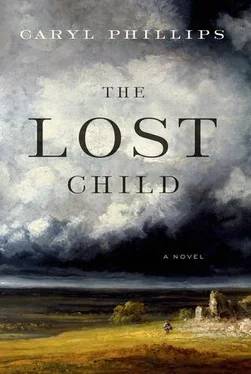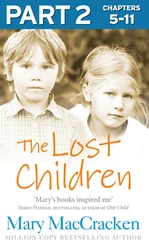After nearly a week locked away in the flat, I decide to take a trip out and present myself at the Jobcentre. However, the mousy woman, with one arm of her spectacles held together with Sellotape, insists that they have nothing for me, and although we manage to keep everything civil and polite, it’s clear that I don’t like her and she doesn’t like me. As I’m walking back to the house, I can see that the man from next door is standing by his gate and looking up at his house, as though he’s making sure that it hasn’t caught some kind of disease as a result of its close proximity to my actor friend’s house. As I pass him by, he speaks without looking at me. Isn’t it about time you moved on? I stop and turn and face him and tell him that I’m a grown woman and where I stay and what I do are none of his bloody business, but I can see from the look on his face that this isn’t going to shut him up. The others didn’t stay this long. Don’t you have a home to go to? I take a step towards him. No, I say, I don’t have a home to go to. Are you happy now? I go inside and hurry up to the first floor and bang on the door of the old lady, but there’s no response. I worry that maybe she’s dead and lying in there all alone, so I sit down outside of her door in the hope that maybe I’ll hear her moving about. But after a few hours it’s still quiet, and so I stand up and make my way back down to the garden flat.
I can’t sleep, so I just sit on the settee and listen to the noises of the night and finally decide that I can’t possibly spend another moment in a house with a dead person, so I put on my coat. When I get to the phone box, I dial my friend’s number and wait, but nobody picks up, so I put down the receiver and try again, but again nobody picks up, so now I don’t know what to do except walk the streets. It’s soon lunchtime, and there’s hardly anybody in the pub, so I buy a half of lager and take it to the table in the corner and drink it slowly, and then fetch a few more, and nobody bothers me. When I’ve finished, I go and call yet again, and this time he answers the phone, and I can hear it in his voice that he’s surprised to hear from me. He tells me that he’s positive that the old lady is fine — she sure as hell understands what is meant by a sitting tenant — then he says that maybe I should think about finding another place, for it’s clear that his flat doesn’t suit me. I don’t know what to say, for I was only trying to be helpful, and I certainly wasn’t expecting this. Look, I’ll come by on Saturday or Sunday and we can talk about it. Maybe go for a drive, he says, and this makes me feel better, although I can tell that he’s just rushing me off the phone.
The weekend is finished, and he didn’t come. I go and knock at the old lady’s door again, and this time I can hear her moving about, and so I definitely know now that she’s not dead and she’s just avoiding me. Of course, the sensible thing to do would be to ignore her, but I stand outside of her door, for I know that at some point the woman has to come out. So, I’m outside of her door waiting, like the time in January that I stood up outside of Ben’s school and waited for him to come out, and all the other boys came out, but not my son. And then a red-faced teacher marched across the playground and told me that I had to go now or they would call the authorities, whoever they might be, and he folded his arms, and I didn’t really see any point in causing a scandal and making life uncomfortable for anybody, including Ben. The next day I could see that Denise was annoyed when the social worker turned up at the library and whispered to me that we had to talk. We went into the staff room, and she read me the riot act and tried to get me to agree that what I did was out of line. Apparently, I can’t wait for my own son after school, it’s not allowed. After my social worker left, Denise gave me my final warning.
A few days pass, and I decide to go back to the phone box down the road. I dial, but nobody picks up the phone, so worried that maybe I called the wrong number, I dial again, but again it just rings out, and so I stand there listening and wondering what I should do now. I don’t have enough money to go to the pub, but I need something to help me sleep, for it takes me ages to nod off, and no sooner have I nodded off than I find myself suddenly awake again, for any little noise or movement seems to disturb me. The day before yesterday I went to the small library opposite the tube station and asked the man behind the returns desk if he would give me a job as I had experience in library work. I told him, I like the smell of books, but he looked at me as if he hadn’t the foggiest idea what I was on about. He was a young bloke, definitely younger than me, and he asked me about my previous employment, but I just stared at him because it got me remembering. About a month after the social worker came to the library, Denise called me into her office and asked me to close the door. Then she just asked me straight out if I’d been around to a Mrs. Gilpin’s house this morning, because she’d just had her on the phone. That’s when I understood what was going on. I didn’t deny it, and I told her that I’d gone around there and knocked on the door and told this Mrs. Gilpin that I wished to see my son, but she just looked me up and down like my label had fallen off and told me that I had to go, but I let her know that I’d go only once I’d seen my son, and that’s when she started to get nasty and said she’d be calling the police if I didn’t leave. Not wanting to provoke a full-scale row, I gave her a piece of my mind and left, but apparently she thought better of calling the police and chose instead to phone my job, and that was all the excuse Denise needed to tell me that I couldn’t work there anymore. Despite our friendship, she said, which made me bite my tongue. What friendship? Ever since I came back from convalescing, she’d kept her distance and treated me like a leper. Monica, despite our friendship, I can’t overlook the fact that you’re habitually late and you just don’t seem to be able to keep your mind on the task at hand. I had to calm this Mrs. Glipin down, as she was ready to send the police around to have a word with you. Now you know that I can’t have police officers coming into the library, you know this, don’t you? I started to tell her that this wasn’t fair, but she told me that she’d already spoken with the council head office, and with my social worker, and everyone was in agreement. They were going to pay me till the end of the month, but as it turned out, they did have a part-time position in another library, if I was willing to think about that, but as of now I was free to leave. And so that was that, and although I didn’t tell the nice young man at the library the whole story, I did tell him that since moving to London, I’d worked at a community centre, but my heart was really in the library profession. Well, he said, but I could see that he was talking and thinking at the same time, we don’t have anything at the present, but if I wanted to try again in the autumn, he happened to know that one of the part-time staff would be on maternity leave. He lowered his voice as he said this, and I thanked him but it didn’t seem right to let on that I’d be back at university in the autumn, so this wasn’t going to work.
I tried the other branch library, but I lasted only a week. It was located on a side street behind an out-of-date shopping centre. Today nobody would think of building a shopping complex that didn’t have a roof, and piped music and warm air, and places to sit down, but this concrete monstrosity was arranged in a big L shape around a huge car park. At one end of the place was a post office, a newsagent’s, a shoe mender’s, a bookie’s, and a dry cleaner’s; at the other end was a supermarket, and hugging the right angle in between was a secondhand charity shop, a maternity boutique, and a council office where you could pay your rent. On the far side of the car park, where the main road was at the farthest point from the shopping centre, there was a row of bus stops with identical plexiglass shelters, and a few seats on which the shoppers could sit themselves down while waiting for their buses to appear.
Читать дальше












